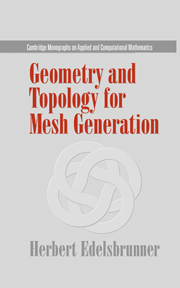7 - Open problems
Published online by Cambridge University Press: 03 October 2009
Summary
This chapter collects open problems that in one way or the other relate to the material discussed in this book. They represent the complement of the material, in the sense that they attempt to describe what we do not know. We should keep in mind that it is most likely the case that only a tiny fraction of the knowable is known. Hence, there is a vast variety of questions that can be asked but not yet answered. The author of this book exercised subjective taste and judgment to collect a small subset of such questions, in the hope that they can give a glimpse of what is conceivable. Most of the problems are elementary in nature and have been stated elsewhere in the literature.
Two of the twenty-three problems have been solved since this book first appeared in 2001. These are P.8 Union of disks and P.9 Intersection of disks, both solved in [1]. Since the described approaches to the two problems are different from the eventual solution and perhaps useful to understand generalized versions of the problem, we decided to leave Sections P.8 and P.9 unchanged.
Empty convex hexagons
Let S be a set of n points in ℝ 2 and assume no three points are collinear. A convex k-gon is a subset of k points in convex position.
Information
- Type
- Chapter
- Information
- Geometry and Topology for Mesh Generation , pp. 136 - 172Publisher: Cambridge University PressPrint publication year: 2001
